Pros and cons of the BBC licence fee
Smaller than expected increase will leave the national broadcaster with a £90m funding gap
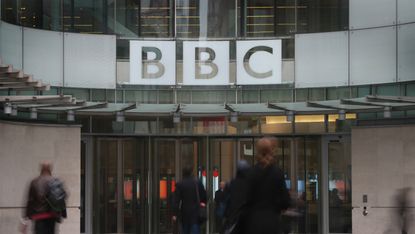
The BBC licence fee will increase by 6.6% from £159 to £169.50 from April next year.
The increase is far less than the BBC was expecting. It had been set to increase by 9%, in line with average inflation, after being frozen for two years.
Instead, the new rate is based on the consumer price index (CPI) inflation rate from September. Due to the recent fall in inflation it means the £169.50 figure is less than might have been the case.
Subscribe to The Week
Escape your echo chamber. Get the facts behind the news, plus analysis from multiple perspectives.

Sign up for The Week's Free Newsletters
From our morning news briefing to a weekly Good News Newsletter, get the best of The Week delivered directly to your inbox.
From our morning news briefing to a weekly Good News Newsletter, get the best of The Week delivered directly to your inbox.
The decision means the BBC will now be left with a funding gap of around £90 million, said the broadcaster.
Culture Secretary Lucy Frazer told MPs she was launching a review of the BBC's funding model as she announced the smaller than expected increase.
She said the government would support the BBC to "realise commercial opportunities which will make it more financially sustainable".
The Week takes a look at the arguments for and against the licence fee.
Match of the Day host Gary Lineker, the BBC’s highest-paid star, has also questioned the future of the annual licence fee and called for it to be made voluntary.
Pro: no advertising
The most commonly cited benefit of the TV licence is that it allows the BBC to have no need for third-party commercial advertising to generate revenue. UK programming and services remain advert-free through the BBC, as they have been since the corporation's inception.
Con: unfair and unpopular
A criticism often levelled at the BBC is that forcing people to pay for a service they either don't use very often or do not agree with politically is unfair. And the licence fee isn't popular. According to recent polling from Electoral Calculus, 63% of Britons agreed that the licence fee should be abolished and instead replaced with a voluntary subscription service.
Earlier this year, former BBC chairman Richard Sharp said that the licence fee system was "regressive" – meaning that wealthier households pay the same as poorer ones – and suggested it could be replaced by a tax on broadband bills or a household levy based on property value.
Pro: editorial independence
The BBC argues that the licence fee allows it to "remain independent and distanced from government initiatives, campaigners, charities and their agendas, no matter how apparently worthy the cause or how much their message appears to be accepted or uncontroversial".
Con: expensive fines
Some 10% of court cases relate to TV licensing, and while evaders don't end up with a criminal record, they could receive a fine of up to £1,000 – although most pay a fine of £150-£200.
LoveMoney, a personal finance site, has argued that the fines for not paying the BBC fee are an "unpayable charge" for people on low incomes, who are the "most likely to be done for licence fee evasion".
It also argues that the current system of licence collection is inefficient and far too costly for a publicly funded institution. "It costs a ludicrous amount in admin" that could easily "be saved by using a different funding model," according to the site. Official figures show that in 2022/23, the cost of licence fee collection was £136.5 million, representing 3.6% of the total revenue collected of £3.7 billion.
Pro: informing the public
Many of the BBC's supporters say that the corporation is a vital tool in ensuring that everyone in the UK – and across the world – is granted access to fair, unbiased news and public programming.
In recent years, the BBC has "helped to keep our most divisive national debates anchored in a bedrock of fact", wrote Martin Wolf in the Financial Times.
Recent research from Oxford University's Reuters Institute found that the BBC is "by far the most widely used source of news in the UK both online and offline" and is also "one of the most highly trusted" sources of news.
Globally, the BBC World Service reaches a weekly audience of 318 million people, according to the BBC. And in the UK, the broadcaster is used by 90% of adults and 80% of 18- to 34-year-olds a week, making it the most used media brand in the country, according to the National Audit Office.
Con: too centralised
Some critics have expressed concerns over the lack of BBC funding for minority languages and cultures of the UK. In 2019, a 68-year-old woman was arrested after she was revealed to be one of a group of around 80 people in Wales who had stopped paying their TV licence over a lack of representation of Welsh culture by the BBC.
The non-payment campaign was led by the language campaign group Cymdeithas yr Iaith Gymraeg, which according to The Guardian believes that Wales is "being ill-served by the media to the detriment of
Create an account with the same email registered to your subscription to unlock access.
Sign up for Today's Best Articles in your inbox
A free daily email with the biggest news stories of the day – and the best features from TheWeek.com
-
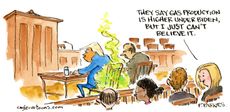 Today's political cartoons - April 27, 2024
Today's political cartoons - April 27, 2024Cartoons Saturday's cartoons - natural gas, fundraising with Ted Cruz, and more
By The Week US Published
-
 Aid to Ukraine: too little, too late?
Aid to Ukraine: too little, too late?Talking Point House of Representatives finally 'met the moment' but some say it came too late
By The Week UK Published
-
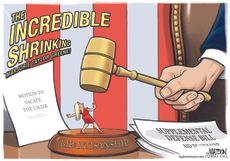 5 generously funny cartoons on the $60 billion foreign aid package
5 generously funny cartoons on the $60 billion foreign aid packageCartoons Artists take on Republican opposition, aid to Ukraine, and more
By The Week US Published
-
 Live events on streaming platforms could be cable's death blow
Live events on streaming platforms could be cable's death blowUnder the Radar Netflix recently signed a massive deal for its first major live sports event
By Justin Klawans, The Week US Published
-
 The Princess Diana interview and Martin Bashir's redacted dossier
The Princess Diana interview and Martin Bashir's redacted dossierWhy everyone's talking about The newly revealed documents show Bashir claimed jealousy and discrimination fuelled allegations against him
By Richard Windsor, The Week UK Published
-
 The death of DVDs and the decline of ownership in digital age
The death of DVDs and the decline of ownership in digital ageTalking Point Physical media sales are still in freefall even as a backlash against streaming grows
By The Week Staff Published
-
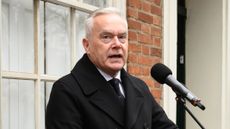 Huw Edwards and the question of ‘public interest’
Huw Edwards and the question of ‘public interest’Talking Point Privacy law ‘mess’ needs to be cleared up, not by judges, but by Parliament
By The Week Staff Published
-
 Huw Edwards named as presenter at centre of BBC crisis
Huw Edwards named as presenter at centre of BBC crisisIn Depth News reader’s wife, Vicky Flind, says he will remain in hospital for foreseeable future
By The Week Staff Last updated
-
 Fiona Bruce: has Question Time host been ‘hung out to dry’?
Fiona Bruce: has Question Time host been ‘hung out to dry’?In Depth Presenter accused of trivialising domestic abuse in debate about Stanley Johnson
By The Week Staff Published
-
 Prince Harry, Princess Diana and the media
Prince Harry, Princess Diana and the mediaTalking Point Pundits say Diana would be ‘appalled’ by her son’s actions but might she have approved?
By Chas Newkey-Burden Published
-
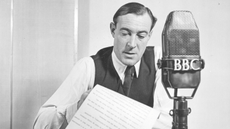 BBC at 100: what does the future hold for at-threat institution?
BBC at 100: what does the future hold for at-threat institution?Today's Big Question The British Broadcasting Corporation is facing looming funding cuts amid digital ‘transformation’ of media
By The Week Staff Published